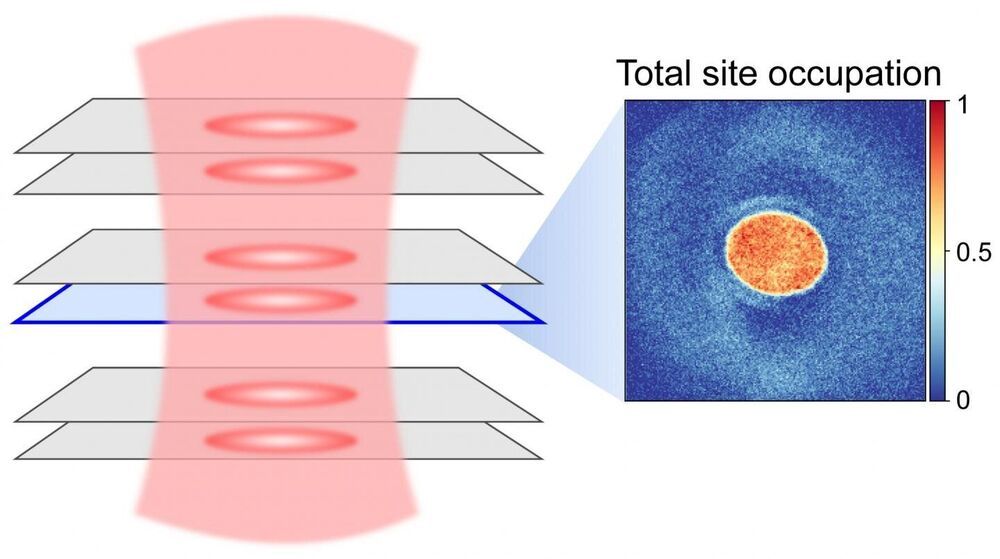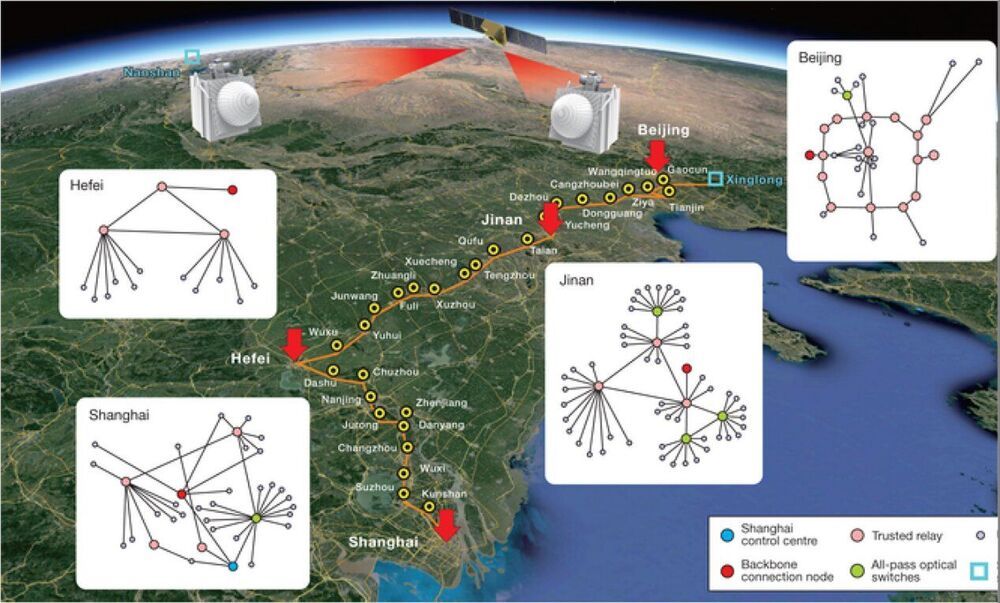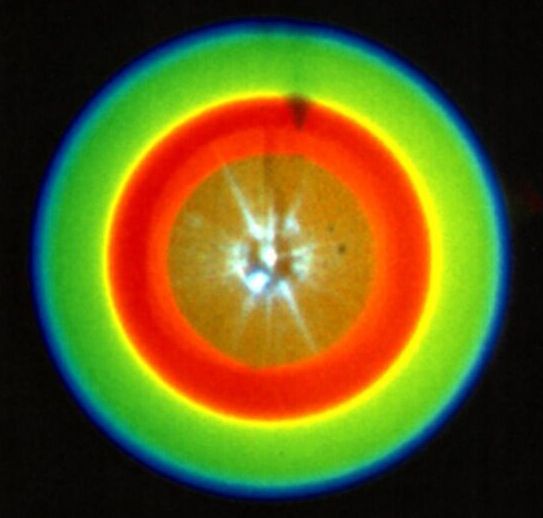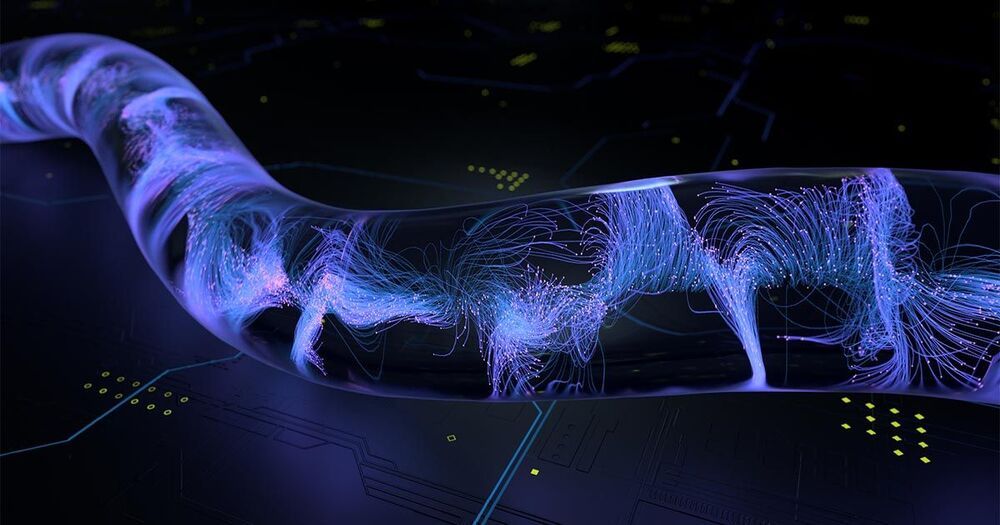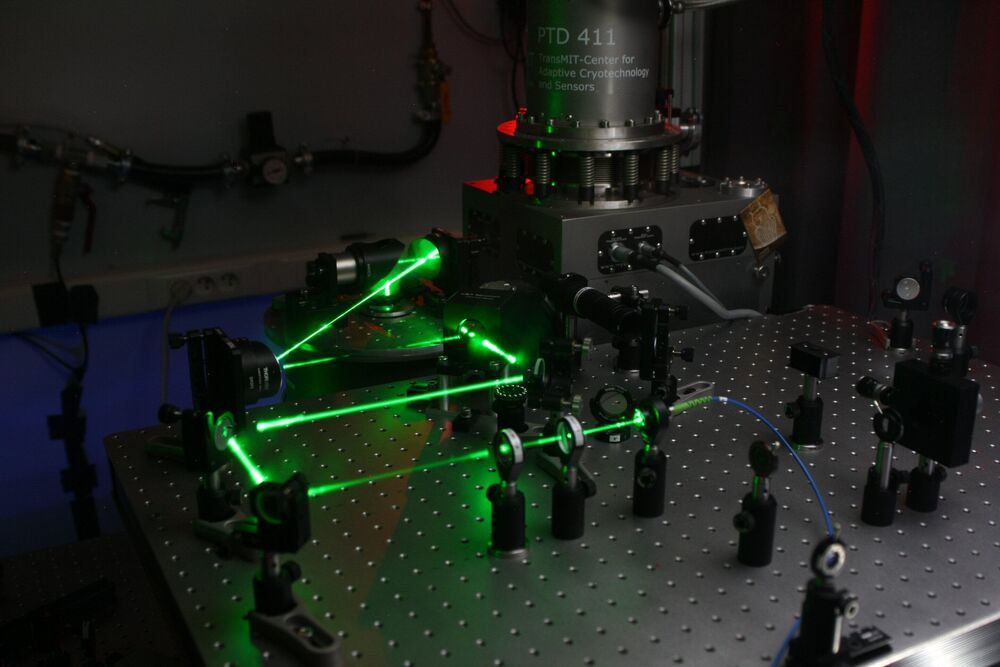They are as thin as a hair, only a hundred thousand times thinner—so-called two-dimensional materials, consisting of a single layer of atoms, have been booming in research for years. They became known to a wider audience when two Russian-British scientists were awarded the Nobel Prize in Physics in 2010 for the discovery of graphene, a building block of graphite. The special feature of such materials is that they possess novel properties that can only be explained with the help of the laws of quantum mechanics and that may be relevant for enhanced technologies. Researchers at the University of Bonn (Germany) have now used ultracold atoms to gain new insights into previously unknown quantum phenomena. They found out that the magnetic orders between two coupled thin films of atoms compete with each other. The study has been published in the journal Nature.
Quantum systems realize very unique states of matter originating from the world of nanostructures. They facilitate a wide variety of new technological applications, e.g. contributing to secure data encryption, introducing ever smaller and faster technical devices and even enabling the development of a quantum computer. In the future, such a computer could solve problems which conventional computers cannot solve at all or only over a long period of time.
How unusual quantum phenomena arise is still far from being fully understood. To shed light on this, a team of physicists led by Prof. Michael Köhl at the Matter and Light for Quantum Computing Cluster of Excellence at the University of Bonn are using so-called quantum simulators, which mimic the interaction of several quantum particles—something that cannot be done with conventional methods. Even state-of-the-art computer models cannot calculate complex processes such as magnetism and electricity down to the last detail.
